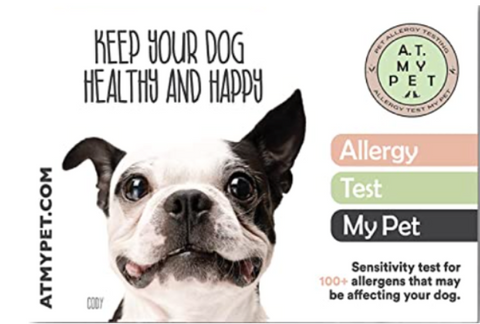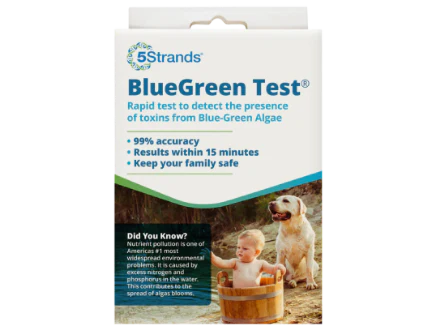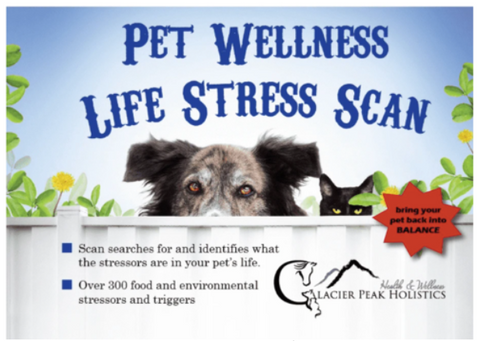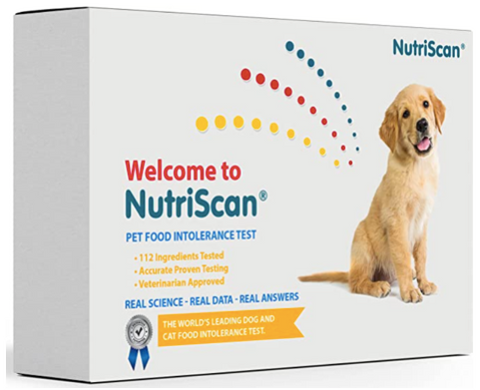Have you noticed that your pet has changed their behavior? Are they scratching all the time, or do they turn away from the food you are feeding them?
If this is your pup or kitty, then they could possibly be suffering from allergies or an intolerance. Yes, our pets can be allergic or intolerant to food and environmental items just like us! Pets can be exposed to allergens everywhere. It can be an ingredient in their food or even the pollen outdoors. Since they do not have a voice, it is difficult to determine just what they are feeling and what is exactly going on with them.
What are the most common symptoms of allergies or intolerances?
Most common and the easiest to identify are the skin issues that will develop such as itching, scratching, red/scaly skin patches, itchy, runny eyes, itchy ears/ear infections, and constant licking.
But they can also suffer from gastrointestinal disorders too like upset stomach, diarrhea, and constipation.
Some can even develop respiratory issues over time if left undiagnosed.
If the symptoms are year round, it could potentially be a food item that is causing the issue. If it is seasonal, it would most likely be environmentally related.
Types of testing for your pets:
If you are concerned about your pet and decide to take them to the vets, there are 2 main types of tests that they can conduct.
1. Rast Test or Blood Allergy Test-A RAST test, or radioallergosorbent test, is a blood test that can be used to determine whether a dog or cat is allergic to certain antigens. This test is often performed as part of the workup for atopy (a skin manifestation of inhalant allergy) in dogs or cats.This only requires one blood sample. There is no sedation or hair shaving needed.
2. Intradermal Allergy Test or Skin Prick Test-The test involves injection of a small amount of the suspected allergen under the surface of the skin. After about 20 minutes the area is examined for a reaction at the site.The pet must be sedated and the vet will have to shave the area where the testing will be conducted.
Both of these types of testing are very invasive for your pet and the cost can sometimes be prohibited. These two types of tests are looking at immune system responses or IgE responses. This actually accounts for only around 10% of the pet population. A much higher percentage of the pet population suffers from a sensitivity or an intolerance. That would range from IgG, IgM, or T-Cell responses. So if your pet is not suffering from a true allergy, these tests may not give you the answers that you need.
However, there are all kinds of At Home Test Kits that have emerged. If you suspect that your pet may be suffering from an allergy/sensitivity/or intolerance, the easiest and least expensive way to determine if your pet is suffering from any of these would be to try out one of these at home testing kits.
Since there are many at home testing kits out there on the market, it can be very difficult to decide which one to choose. We have listed the top 8 at home testing kits and have laid out the basics for each of the kits to include the cost per test, sampling type (what the test takes the data from), how long it takes for you to receive results, how many food and environmental items are tested at the lab, and the review rating from other customers on websites from which the tests are sold.
So let’s get started:
1. 5Strands - Pet Standard Test

Cost: $148
Sampling type: Hair/ Fur
Test for Intolerances (T-cell reactions)
Time it takes to receive test results: 7-10 days
Items tested: 255 Food and 125 Environmental
Amazon Reviews: 4.3 out of 5
The 5Strands Pet Standard test from a standard cost standpoint isn’t the cheapest on this list, but it does capture more food and environmental items that can cause intolerances than most of the tests. It is sold on their website, Amazon, Chewy.com, Petco, Walmart and various other stores. It only takes a few days to receive test results from when they receive your pet’s sample. This is also a fur test kit, meaning you send in a few strands of fur from your pet rather than having to swab or collect saliva from your pet. This makes things a lot easier especially if your pet sheds. You just have to gather a little bit of fur, put it in a bag, and send it to 5Strands.
2. Allergy Test My Pet

Cost: $89.99
Sampling type: Saliva swab
Tests for Intolerances
Time it takes to receive test results: 2-3 weeks
Items tested: 150 Food and Environmental
Amazon Reviews: 4.1 out of 5
This test is cost efficient but only tests for 150 food and environmental factors. The collection is by swab which may be a little unnerving for you if your pet doesn’t let you “swab” them.
3. Easy DNA - Dog Allergy Test

Cost: $99
Sampling type: Swab under tongue
It does not specify what sensitivity level they test for. It just indicates that it measures the protein reactions to the allergens
Time it takes to receive test results: 2-3 weeks
Items tested: 120 Food and Environmental
Trustpilot Reviews: 4.1 out of 5
The Easy DNA- Dog Allergy test comes at $99, takes a few weeks to get results back, and tests 120 allergy factors. It also is only made for dogs and conducted by you via swab under tongue. Not a bad deal for your pup, but a bit limited in the range of pets it is offered to since they do not do the testing for cats.
4. Glacier Peak Holistics – Pet Wellness Life Stress Scan
Cost: $129.95
Sampling type: Fur and Swab
It does not indicate what sensitivity level it is testing for.
Time it takes to receive test results: 2 weeks
Items tested: 300 Food and Environmental
Google Reviews: 4.4 out of 5
The Glacier Peak Holistics Pet Wellness Scan Test costs $130 and takes a few weeks to get results. It tests for 300 food and environmental items. The only downside for this test is that it doesn’t specify for an item to cause an allergy or intolerance, only “stress.” A bit ambiguous on what kind of results a “stress” test provides, and the action points it can give you to make changes in your pet’s diet or environment.
5. UCARI - Pet Sensitivity & Intolerance Test
Cost: $59.99
Sampling type: Fur
Tests for Intolerances
Time it takes to receive test results: 7-10 days
Items tested: 1000 Food and Environmental
Amazon Reviews: 4 out of 5
The UCARI test is great on cost, efficient on time it takes to receive results, and tests many items. Also, the sampling method is fur rather than swab or saliva. The reporting format is a bit cumbersome though.
6. At-Home NutriScan – Pet Food Intolerance and Sensitivity Test for Dogs
Cost: $302.74
Sampling type: Saliva Collection
Time it takes to receive test results: 2 weeks
Items tested: 112 Food and Environmental
Amazon Reviews: 3.7 out of 5
The At-Home NutriScan test costs $303, takes 2 weeks or so to receive results, and only tests 112 food and environmental items. This test is a little costly for the time it takes to get results and the minimal number of items it tests for. Also, a downside is it being a saliva collection sampling test. This test is also only offered for dogs, not cats.
7. Affinity DNA Dog Allergy Test

Cost: $99
Sampling type: Saliva Collection
Time it takes to receive test results: 2- 3 weeks
Items tested: 116 Food and Environmental
Amazon Reviews: 4.5 out of 5
Their website writes that the test is simple. You’ll be provided with a kit that provides instructions on how to collect a suitable sample. Affinity DNA’s detailed report will outline some of the foodstuffs and products that your dog has shown to react to, This is not a DNA test. Affinity DNA will test the proteins present in your dog’s immune system to measure your dog’s sensitives to 116 common substances. Again, this is a test not applicable for cats.
8. Pet test from allergytest.co
Cost: $46.99 - they use a downloadable form
Sampling type: Fur Collection form only
Tests for Intolerances
Time it takes to receive test results: 2- 3 weeks
Items tested: 30 Food and Environmental
Amazon Reviews: none listed
Our Pet Sensitivity Test is a basic test of 30 key trigger items in an easy-to-use home-to-lab hair sample test. Online submission and mail your hair sample back to us. No kit is mailed. PDF results sent securely to your email and our app.
It is important to know before you buy what they are testing for.
Not all tests are looking at the same reactive issues. You need to decide where you will test for immune system responses first or look at strictly intolerances as that is what is most common. Depending on what is going on with your pet, it may take more than one type of test to get the complete picture on what is going on with your pet.
All in all, there are some great tests out there to help your pet if they are feeling discomfort or seem to have an allergy or intolerance. Many vary in price, number of items tested, and the sampling type.
May this article help you make a decision on which test is best for you.
If you have any questions, please contact us via our contact page on 5Strands.com.






























